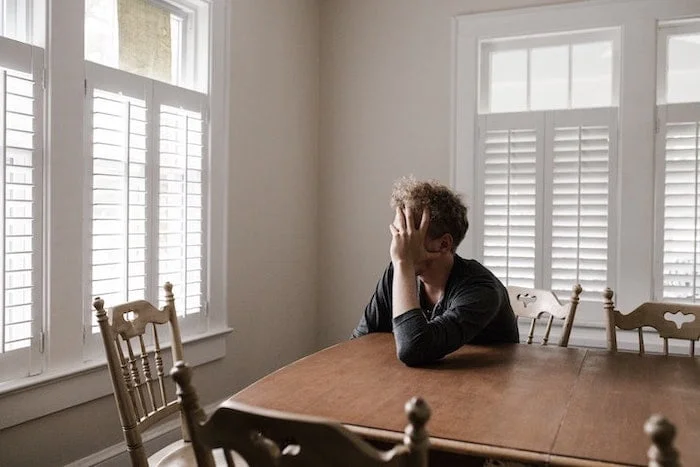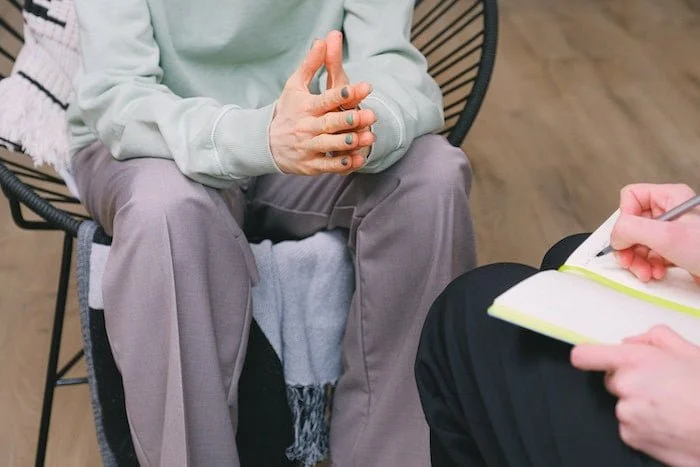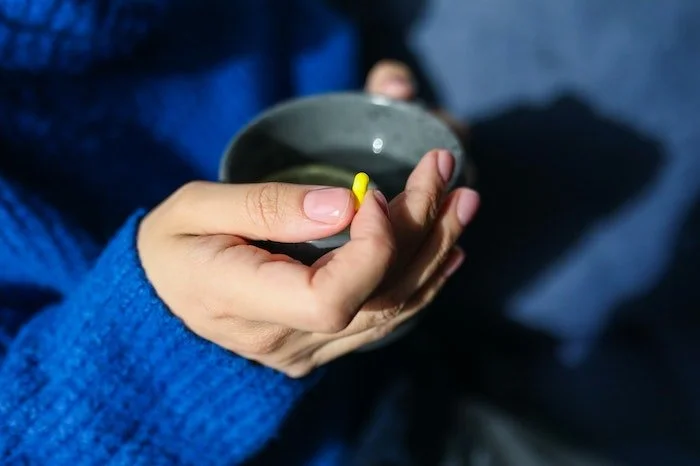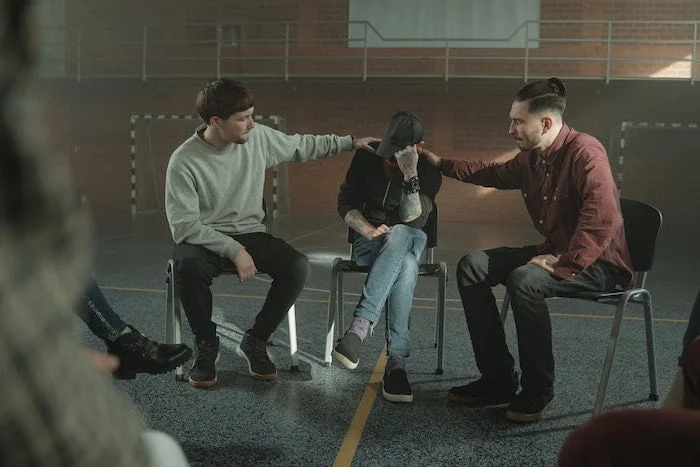Quick links for Schizoaffective Disorder
- How is Schizoaffective Disorder Diagnosed?
- What Types of Schizoaffective Disorder Exist?
- What are the Signs and Symptoms of Schizoaffective Disorder?
- What Are the Causes of Schizoaffective Disorder?
- Is Schizoaffective Disorder the same as Schizophrenia?
- How Common is Schizoaffective Disorder?
- What Treatments Are Available for Schizoaffective Disorder?
- How Do I Get Help for Schizoaffective Disorder Today?
Schizoaffective disorder is a serious mental health condition that impacts many people in the UK and across the world.
It is characterised by a general disconnection with reality, including unusual behaviour, erratic mood swings and delusions, often having a devastating impact on the life of the individual sufferer.
Schizoaffective disorder has been compared to bipolar disorder and various psychotic conditions in its symptoms.
If you suspect that you or a loved one may be suffering from schizoaffective disorder, getting help is an essential step towards a better life.
With the help of a qualified mental health professional or a GP, schizoaffective disorder can be properly addressed and treated in order to keep its symptoms to a minimum.
With this help, a victim of schizoaffective disorder can live a long, happy and fulfilling life.
To learn everything you need to know about schizoaffective disorder, give our team a call today on 0800 326 5559
How is Schizoaffective Disorder Diagnosed?

Therapist and patient taking notes about schizoaffective disorder
Schizoaffective disorder will be diagnosed by a psychiatrist following a thorough mental health assessment.
Their diagnosis will follow outlines established by the International Classification of Diseases (ICD-10) or the Diagnostic and Statistical Manual of Mental Disorders – 5th edition (DSM-5). Both criteria are recognised internationally for their accuracy in diagnosis.
Sometimes several assessments are necessary as the nature of diagnosing mental health disorders is complex, with many disorders sharing the same symptoms.
Typically, a person will be diagnosed with schizoaffective disorder when they suffer from manic and/or depressive symptoms alongside schizophrenic symptoms.
If you think that you or a loved one may be suffering from schizoaffective disorder, reach out to us for free on 0800 326 5559
What Types of Schizoaffective Disorder Exist?

Man holding his head and speaking with a medical professional about schizoaffective disorder
Schizoaffective Disorder typically comes in three distinct types categorised on the nature of the symptoms an individual suffers from.
Manic Schizoaffective Disorder
An individual suffering from Manic Schizoaffective Disorder will typically suffer from both schizophrenic and manic symptoms during an episode.
Depressive Schizoaffective Disorder
An individual suffering from Depressive Schizoaffective Disorder will typically suffer from both depressive and manic symptoms during an episode.
Mixed Schizoaffective Disorder
An individual suffering from Mixed Schizoaffective Disorder will experience a mix of manic, depressive and schizophrenic symptoms during an episode.
Discover more about schizoaffective disorder by reaching out to us on 0800 326 5559
What are the Signs and Symptoms of Schizoaffective Disorder?

Person sat at a table looking tired
Schizoaffective disorder will often visibly manifest through one or more noticeable signs and symptoms.
Whilst specific symptoms will depend on whether an individual is suffering from Depressive Schizoaffective Disorder or Manic Schizoaffective disorder, more general symptoms include:
- Hallucinations
- Delusions
- Erratic Behaviour
- Disorganised Speech
- Catatonic Behaviour
Depressive Symptoms
Symptoms of Depressive Schizoaffective Disorder typically include:
- Low Mood
- Suicidal thoughts
- Feelings of guilt and worthlessness
- Lack of energy
- Loss of interest in activities or hobbies
- Restlessness
- Concentration difficulty
- Sleeping issues (disturbed or excessive)
Manic Symptoms
Symptoms of Manic Schizoaffective Disorder typically include:
- Irritability
- Excessive energy or restlessness
- Being easily distracted
- Sudden feelings of inappropriate elation
- Overconfidence
- Risky situations/behaviour
- Uncharacteristic behaviour
- Aggression
- Insomnia
If you notice these symptoms in yourself or a loved one, then you should seek professional advice.
Have you started to spot the signs of schizoaffective disorder? Talk it over with our guidance team on 0800 326 5559
What Are the Causes of Schizoaffective Disorder?

Patient sat on a sofa speaking with a therapist about schizoaffective disorder
It is not entirely clear what causes schizoaffective disorder; however, current medical understanding indicates that there are several genetic and environmental factors that likely contribute towards its development.
Genetic Factors
33% of children who have at least one parent suffering from a significant mental health issue will go on to develop one themselves. This is a strong indicator that genetics plays a key role in the development of psychological disorders, including schizoaffective disorder, schizophrenia and bipolar disorder.
Environmental Factors
Stress is one of the most commonly attributed environmental causes of mental health issues like schizoaffective disorder.
Stress is a broad term that applies to a wide range of challenging or traumatic situations in one’s life, including bereavement, job loss, car accidents, traumatic childhood experiences, physical illness and more.
Stress can both trigger and worsen an episode of schizoaffective disorder.
The use of certain addictive substances has also been linked to the development of psychological disorders.
Learn more about the potential causes of schizoaffective disorder by calling us today on 0800 326 5559
Is Schizoaffective Disorder the same as Schizophrenia?

Medical professional taking notes whilst speaking with a woman about schizoaffective disorder
Schizoaffective disorder bears some similarities to both schizophrenia and bipolar disorder, leading some people to believe that these conditions all exist on the same ‘spectrum’.
However, it should be noted that schizoaffective disorder is considered to be a distinct psychological disorder and is treated as such by mental health professionals.
How Common is Schizoaffective Disorder?
Schizoaffective disorder is a semi-common mental health condition in the UK, displaying at some point in the lives of 1 in every 200 people.
Symptoms will typically appear early in an individual’s adult life and are more common in women than in men. Whilst depressive schizoaffective disorder is more common among older individuals, manic schizoaffective disorder is the most common type experienced by younger people.
What Treatments Are Available for Schizoaffective Disorder?

Individual therapy for schizoaffective disorder in progress
Many treatment methods exist for schizoaffective disorder and an individual entering care will likely experience a combination of several.
Treatment can take the form of both medication and talking therapies, alongside other psychological treatments designed to bolster the patient’s general mental health.
Medications for Schizoaffective Disorder
Specific medications to treat the symptoms of schizoaffective disorder can be prescribed by a GP or qualified mental health professional.
Taking these medications regularly and in appropriate doses can help to keep the worst aspects of schizoaffective disorder at bay and even prevent episodes entirely.
Patients undergoing these courses will be carefully monitored to minimise side effects and all prescriptions will be made with consideration towards any other medications that are already being taken.

Person taking medication for schizoaffective disorder
What Types of Medication Are Effective at Treating Schizoaffective Disorder?
Episodes of schizoaffective disorders can be treated using antipsychotic medications, commonly Risperidone, Quetiapine, Olanzapine and Amisulpride.
Antipsychotics are also used to prevent episodes and treat schizoaffective disorder in the longer-term.
Manic symptoms can be treated using mood stabilisers such as sodium, lithium and valproate.
Treating depressive symptoms of schizoaffective disorder can be done with common antidepressants such as SSRIs.
How Long Will I Have to Take Medication for Schizoaffective Disorder?
Often a course of medication for schizoaffective disorder will last for the rest of an individual’s life.
It is possible to gradually reduce and stop these courses of medication, but it can be dangerous. This should only be attempted with the full support and guidance of a medical professional.
What Will Happen If I Stop Taking Medication for Schizoaffective Disorder?
Most medications for treating schizoaffective disorder will last in the body for a significant time, meaning that quitting medication may not have any distinct effect for several weeks. However, this is a dangerous choice and can lead to intense schizoaffective episodes and other dangers to mental and physical health.
If you have any further questions about taking medication for schizoaffective disorder, talk to us on 0800 326 5559

Group support meeting for schizoaffective disorder
Therapies for Schizoaffective Disorder
There are several therapeutic methods used to treat schizoaffective disorder, generally aimed at addressing the delusional and hallucinatory elements of this disease.
Some treatments also focus on building up an individual’s support network to help strengthen both their connection to reality and increase the effectiveness of those they can turn to in a crisis.
Psychotherapy and Counselling for Schizoaffective Disorder
Psychotherapy aims to help patient monitor their thoughts and feelings in a way that strengthens their mental health and minimises their distress.
This can take the form of several therapy techniques, such as Cognitive Behavioural Therapy (CBT), Dialectical Behavioural Therapy (DBT), Motivational Interviewing (MI) and Brief Interventions.
Counselling provides the patient with the opportunity to share their opinions, fears and insights in their own recovery journey with a professional, giving them a space to reduce stress by sharing their mental load and gaining the valuable advice of those with a wealth of experience in treating mental health disorders.
Family Therapy for Schizoaffective Disorder
Families can be a source of both stress and support and so they often play a key role in the development of an individual’s mental health.
Family therapy helps to involve a person’s family in their mental health treatment, providing both information and collaborative exercises to help them act as an effective support network for their loved one.

Family therapy for schizoaffective disorder
Mutual Support and Self-Help Groups for Schizoaffective Disorder
Speaking with peers suffering from the same conditions can often be a great motivation for recovery.
Mutual support groups provide a social space for people suffering from schizoaffective disorder to meet, allowing them to share their experiences, provide each other with useful coping techniques and spot when their members need more support.
Holistic Therapies for Schizoaffective Disorder
Holistic therapies such as Art Therapy, Music Therapy, Outdoor Therapy and others provide two key benefits for those struggling with schizoaffective disorder.
Firstly, it provides a medium of expression for those who find it difficult to articulate their thoughts and feelings.
Secondly, these activities can introduce patients to new interests and hobbies that can be key in providing an essential path to stress relief.
Discover the various therapies used to treat schizoaffective disorder by calling us today on 0800 326 5559
The Care Program Approach (CPA) for Schizoaffective Disorder
Care Program Approach (CPA) refers to a unified care plan that combines elements from many different mental health services to provide an extremely wide-reaching package of care.
This approach is typically provided to those with complex needs or who are at a high risk of harm, either to themselves or others.
A CPA will typically be organised by a GP or other mental health professional. Not everyone suffering from schizoaffective disorder will need a CPA.

Peer group supporting each other at a meeting for schizoaffective disorder
Community Mental Health Support for Schizoaffective Disorder
This element of treatment could be called ‘aftercare’ as it refers to those services an individual will receive after their initial course of treatment is complete.
Typically held within their local community (when possible and appropriate), these services will help the individual to cope with their schizoaffective disorder, adjust to regular life again and, most significantly, keep them from returning to full-time treatment.
This can take the form of local crisis support groups, peer meetings, NHS outreach teams and outpatient therapy from local rehab services.
Community support also refers to various NHS teams that can provide intervention and support both before and after treatment. These include:
Early Intervention Team (EIT)
These teams can provide support for those suffering from schizoaffective disorder and other psychiatric conditions for the first time. They provide services to people of all ages.
Community Mental Health Team (CMHT)
These flexible groups provide both short and long-term support for those suffering from addiction, acting before and after treatment to provide continued professional help.
Assertive Outreach Team (AOT)
These teams work with adults who have complex mental health issues and need additional help accessing the right treatment. Their primary role is to link these patients with the right services for their needs.
What Can Happen Without Treatment for Schizoaffective Disorder?
If a person does not receive treatment for their schizoaffective disorder, then their symptoms are likely to worsen.
This will severely impact their quality of life, threatening everything from their ability to hold down a job to their personal relationships, their standing with their families and their friendships. There is also a significant risk of suicide.
Don’t let poor mental health dominate your life – get the support you need to manage schizoaffective disorder by talking to our team on 0800 326 5559
How Do I Get Help for Schizoaffective Disorder Today?

People holding hands at a support meeting for schizoaffective disorder
To ensure that you get the right help for your mental health needs, you should speak to a mental health professional.
The NHS can provide thorough treatment for schizoaffective disorder, beginning with a thorough diagnosis to assess your specific needs, followed by an intensive course of medication and therapy.
Whilst the effectiveness of these treatments cannot be underestimated, it is undeniable that the NHS is suffering significantly from budget constraints and the limiting of its resources, particularly regarding mental health services.
With this in mind, it is important to consider the wider options for treatment that exist within the UK.
A private rehab can provide professional treatment for schizoaffective disorder, including full diagnosis, courses of prescription medication and effective and scientifically proven therapies.
Residential rehab centres can offer a safe and professional environment, whilst outpatient clinics can facilitate a wide range of therapies with a minimal amount of disruption to the individual’s daily life.
OK Rehab is here to support anyone suffering from schizoaffective disorder. Our experts can provide guidance regarding how to access the right treatment and treat any related conditions you may be suffering from, such as addiction.





